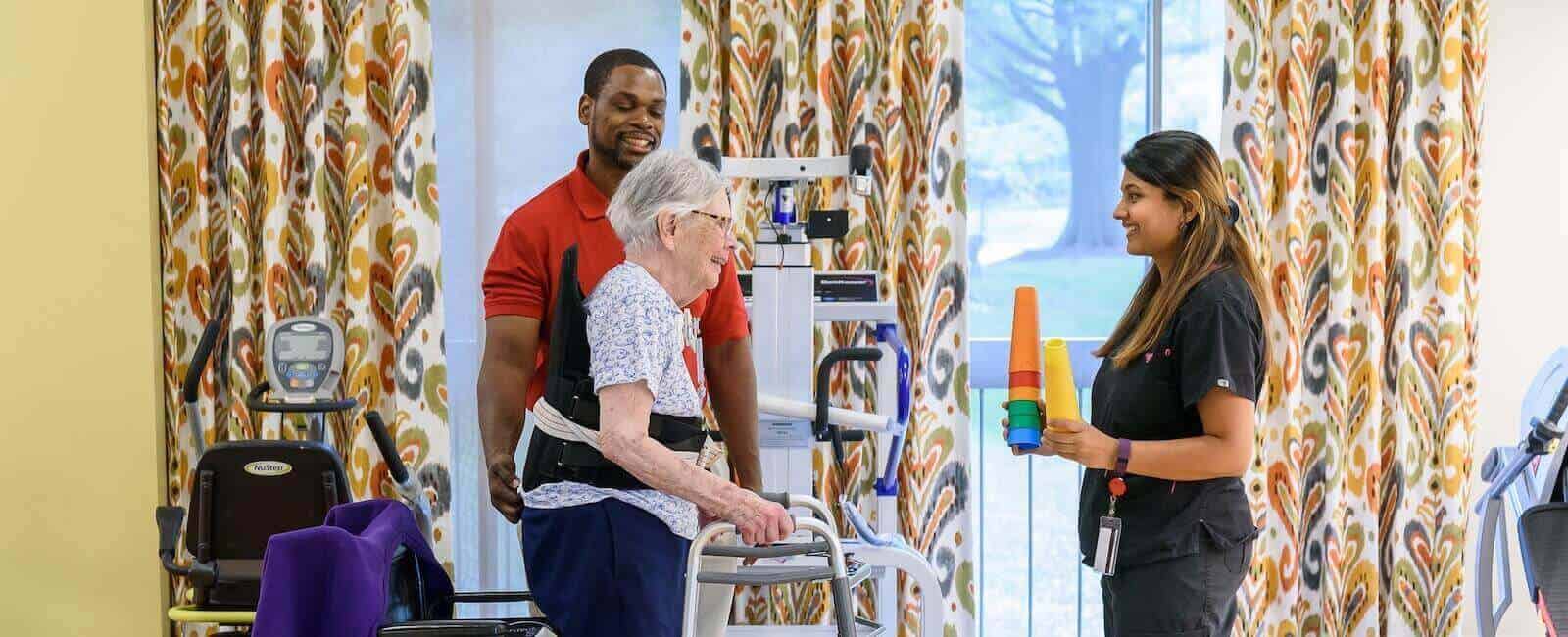Returning Home After Stroke Rehab
Families returning home following a stroke face a multitude of challenges. We hope the following suggestions compiled by Asbury’s rehabilitation services professionals will be helpful.
Home Assessment & Home Services
Most rehabilitative centers offer a home assessment prior to the patient’s return home. Accept it; it is very helpful in understanding safety hazards, supportive equipment needs and whether professional help is needed for a safe and smooth transition home. Further, if equipment needs are determined before returning home, health care staff may be able to secure a discounted rate.
Before your loved one returns home, the hospital or rehabilitative center’s case manager will determine if they are qualified for this Medicare-reimbursed home health care. Whether they do is unique to each individual, their home, and their circumstances.
Medicare does not cover home care services not ordered by a physician such as assistance with daily living tasks, help around the house or with meals and transportation, although some long-term care policies will. But even if your loved one qualifies for Medicare-reimbursed home health care, we recommend scheduling a few hours of home care services the first week home, and staggering those hours with home health. You can always cancel it if you don’t need it.
Experience Helps Head Off Hazards
Why bring in a professional? There are so many factors a non-professional may not consider, and particularly a family member who is still coping with the emotional shock of what has happened. Are there stairs into the home? Is there a bathroom on the first floor, and is there a walk-in shower with grab rails? Home care professionals have experience that allows them to anticipate challenges and a toolkit of solutions that a family member typically won’t. For instance, if my mother’s left side is flaccid following her stroke, I may not know to first dress her left arm or leg and then have her use the active side to finish.
People also tend to focus on physical needs, but recovering from a stroke brings serious emotional challenges as well. Frustration and anger are common side effects. Everything is new and different. Cognitively and physically, processes that took a few minutes can now take much longer. It can be frustrating to struggle for words or try to make your wishes known without clear speech. Just putting on a shirt or styling your hair can be overwhelming.
Factor in Extra Time
It can be hard for a family member to always remain patient – especially if they are trying to fit caregiving duties in with a full-time job. You can’t get in and out in 20 minutes. It can take one to two hours to get the person ready for the day, and adding a shower means more time.
For the first week home, I typically recommend a minimum of six to eight hours of professional help spread out over 24 hours, with an emphasis on morning, meal times and bed time. Nighttime coverage is important if the person’s spouse is unable to safely help them to the bathroom.
Finally, as a caregiver, remember to be patient with yourself, as well as with your loved one. Consider joining a support group, which are also available online. Take care of yourself, too.
Top Advice for Caregivers Helping Care for a Stroke Patient
- Ask the hospital or rehabilitative center for a home assessment prior to the return home. It makes a big difference in creating a smoother transition home.
- Line up 6 to 8 hours of professional help daily for the first week home if you are financially able. You can always cancel it if you find you don’t need it.
- Estimate more time than you think will be necessary when factoring in how long a task will take.
- Factor in plenty of downtime for yourself and the person recovering from stroke. Limit visits for the first two weeks. This is a very challenging period physically and emotionally.
Contact us for more information from our expert senior rehabilitation team, or take a look at some of senior living communities.




